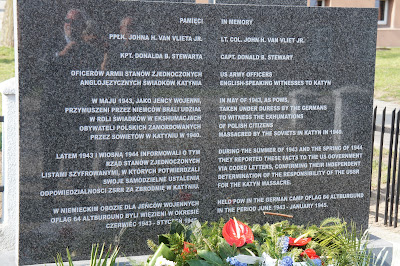Donald Stewart was awarded a commission as a Second Lieutenant in the United States Army after graduating from West Point in 1940. He was assigned to the field artillery at Fort Bragg, North Carolina. In 1942, he was deployed to North Africa as the Allies opened a western front against Field Marshal Rommel and the Afrika Corps. As a Captain, he was in command of an artillery battery.
Cadet Donald B. Stewart (Stewart Family Archives).
Eventually his commanding officer ordered him to deploy his artillery battery on a hill six miles (10 kilometers) out in front of the American lines at Kasserine Pass. He objected (this was a very risky ploy – unsuitable for artillery). His commanding officer insisted he obey the order, under risk of a Court-Martial in a war zone if he failed to do so. He deployed his battery as ordered. One day he observed Panzers in the distance, approaching very quickly. He gave orders to open fire. The Panzers approach soon brought them within the minimum range of the Howitzers, at which point the artillerymen barrel-sighted the guns and continued to fire. When they ran out of shells, they hooked the guns to the trucks and made a run for the American lines. They didn’t make it. They were overrun and shot up pretty badly. My father lost 90 out of 110 men. After the war, he wanted to have his commanding officer prosecuted in a Court-Martial, but discovered that he had been killed in action.
The encounter ended quickly, and seemed to be over except for some sporadic machine gun fire. Captain Stewart and a young soldier next to him were lying flat on the desert floor. Their plans were to wait for the Germans to leave the area, and then make their way to the American lines. A German infantryman walked up to them, and spoke in perfect English, “We know where you are. If you do not get up and surrender, we will lower the machine guns and shoot you.” He and the young soldier were taken prisoner. What they did not know at the time was that the Germans had placed great value on capturing American soldiers in their initial engagements with the American Army. Captain Stewart was awarded the Silver Star for his actions under fire during the Battle of Kasserine Pass.
Capt. Stewart in North Africa: "Yes, this is my house" (Stewart Family Archives).
His initial transit as prisoner of war took him to Germany (Oflag IX A/Z at Rotenburg an der Fulda), and eventually to Poland where he spent most of his time as a POW at Szubin in German occupied Poland. Early in in his captivity, the German Commandant sent two camp guards to inform him that he would be traveling to Russia, where he would function as a witness in an area where mass graves had been discovered. He refused, not wanting to be part of Nazi propaganda. The guards dutifully reported his response. The guards returned with bayonets attached, and informed him that he would travel to Russia as demanded. Donald Stewart journeyed to Russia against his will. He was asked to give his word that he would not attempt to escape during the journey. To promise not to escape would have been a violation of the Code of Conduct. He refused, as did Lt. Col. John Van Vliet Jr., a fellow POW at Oflag 64 and a fellow graduate of West Point, who was captured in North Africa at approximately the same time. Captain Stewart and Lt. Col. Van Vliet Jr. traveled together from Rotenburg an der Fulda to the Katyn Forest.
Capt. Donald B. Stewart at Katyn, third from right (in profile), May 1943 (Stewart Family Archives).
While at the Katyn Forest burial site, Captain Stewart and the other POWs realized that they were being watched very carefully. Because of German photographers hidden about the premises, they knew they could show no emotion, and also realized that they could not discuss their opinions for fear of being overheard and having their conversations recorded by the Nazis. The conditions were gruesome – thousands of corpses in advanced stages of decay stacked like firewood in several large trenches. The stench was oppressive. Captain Stewart was forced to walk on the dead in one of the graves, and was ordered to choose one of the murder victims to be autopsied. All POWs maintained their composure and all POWs arrived at the same conclusion – the Soviets were responsible for the murders. The condition of the uniforms, the boots, were new. All of the newspaper clippings and letters had dates that corroborated that the Soviets had been holding the Polish as captives when they were murdered.
Upon returning from Katyn, neither Captain Stewart nor Lt. Col. Van Vliet Jr., mentioned anything about their observations and experiences during their visit to the Katyn Forest Burial Site.
Captain Stewart was a code user registered with military intelligence. Letters that he wrote home to family while at Szubin secretly contained information that would be of use to American military intelligence. In some of these letters, he communicated that the German claims that the Soviets were responsible for the Katyn Massacre were correct.
While at Szubin, Captain Stewart was in charge of caring for and hiding various items that could be used by the prisoners who were working on escape plans. He was awarded the Bronze Star for his clever efforts. None of his hidden items were ever found, even when searches were conducted by the Gestapo.
Late in the war, as the Red Army approached from the east, and the Allied Forces advanced from the west, it was apparent that the war would soon end. Survival was not guaranteed. Being liberated by the Red Army was not an option, since the Soviets would likely kill him because of his knowledge of the Katyn Massacre.
Oflag 64, January 1944;l-r: Capt. Donald B. Stewart, Capt. James Barker, 1st Lt William E. Rudell, 2nd Lt Wilbur B. Sharpe, 2nd Lt Joseph E. Seringer.
When the camp at Szubin was evacuated, the POWs were split into two groups. One group containing the least healthy prisoners was headed by Lt. Col. Van Vliet and traveled by train from Stolpe auf Usedom to Luckenwalde. The other group, headed by Captain Stewart, marched out. Neither option was good. The Allies had long range fighters that would make strafing runs on trains. As to the march, it was winter – the ground was frozen and there was snow. Both groups reached their destinations.Donald Stewart and John Van Vliet Jr. testified at the Madden Commission confirming their beliefs that the Soviets were responsible for the Katyn Massacre. Congressman Dondero, who had nominated Donald Stewart for an appointment to West Point, was a member of the Madden Commission. Donald Stewart and his wife left Washington, DC that evening after his testimony was completed. They were put on a train to get them out of the area as quickly as possible to prevent the press from talking to him.
April 19, 1970 edition of the Chicago Tribune Sunday Magazine.
Under orders not to talk about Katyn, Donald Stewart did not talk about Katyn (violating the orders not to talk could have cost him his military pension). The orders remained in effect even after he retired in 1968 as a Lieutenant Colonel. The orders were finally rescinded after the Katyn Massacre was a feature story in the April 19, 1970 edition of the Chicago Tribune Sunday Magazine. However, he was never told not to talk about letters that he had written as a POW to his mother – letters that had long ago been cleared by military code users and censors, and delivered to his mother. There is only one letter that my father, Donald Stewart, told me about when I was a child growing up. It was the code letter in which he stated that the German claims that the Soviets were responsible for the Katyn Massacre were correct. He told me about that letter several times, although he never mentioned that it was a code letter.
Still picture from the video tapes of interviews of Colonel John Van Vliet, Jr., and Capt. Donald Stewart, U.S. Army, German prisoners in World War II, relating to their participation in a German-organized committee to investigate the Katyn Forest massacre, 1980.
The Officer’s Cross of Merit of the Republic of Poland posthumously awarded to Capt. Donald Stewart, Warsaw, Belvedere, April 8, 2015.
Because of their continuing efforts to present the truth about the Katyn Massacre, Donald Stewart and John Van Vliet Jr. were recognized in 2014 as Amicus Veritati by the Polish Minister of Culture and National Heritage. The two officers were the first recipients of that award.
In 2015 at a ceremony in Warsaw at Belvedere, President Bronislav Komorowski posthumously awarded both Donald Stewart and John Van Vliet Jr. the Polish Officers Cross of Merit.
Robert D. Stewart, eldest son of Capt. Donald Stewart, unveiling of the Stewart/Van Vliet memorial plaque Szubin, April 11, 2015.
Additionally, in 2015 a plaque was erected in Szubin at the site of the Oflag 64 prison camp. The plaque commemorates the journey by Donald Stewart and John Van Vliet Jr. to the Katyn Forest where they would become witnesses and, upon their return to the camp, secretly report their determination of Soviet responsibility for the murders to the US government in 1943 and again in 1944. The US government has never acknowledged that it knew in 1943 that the Soviets were guilty of the massacre. The communications from Stewart and Van Vliet prove otherwise.
© 2018 Robert D. Stewart



















Brak komentarzy:
Prześlij komentarz